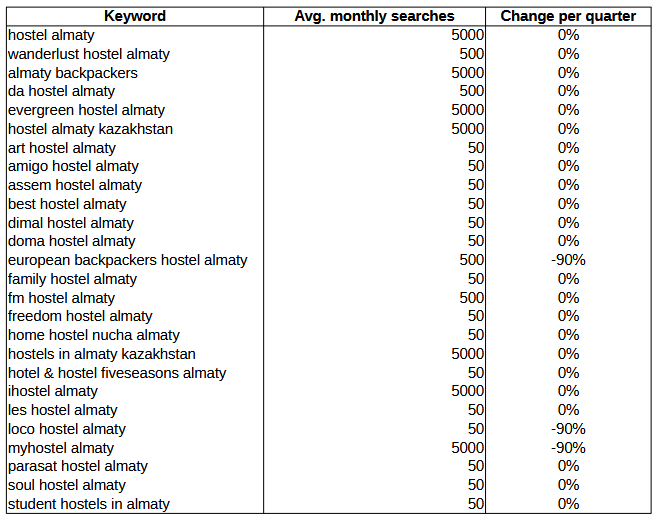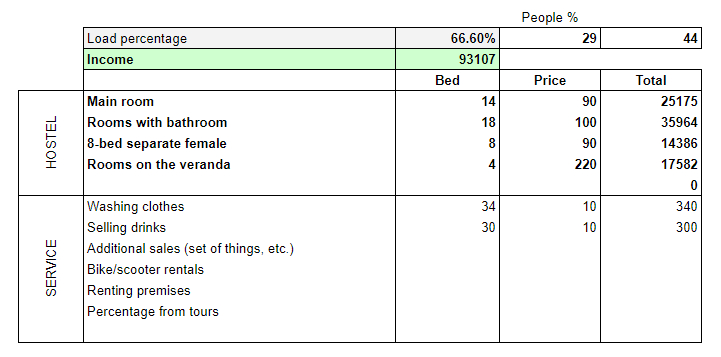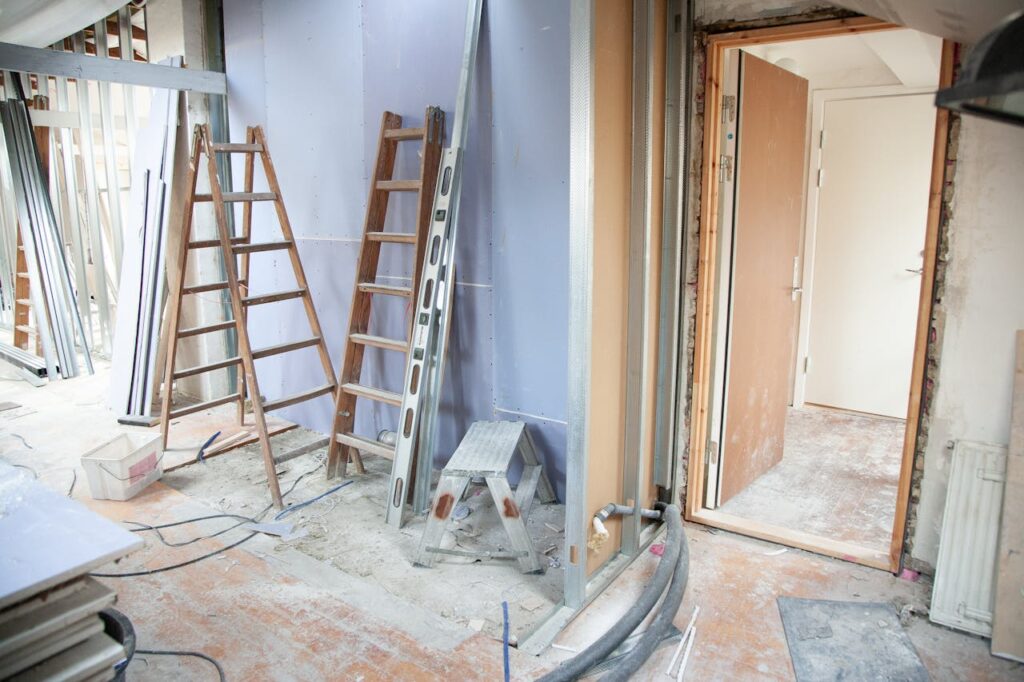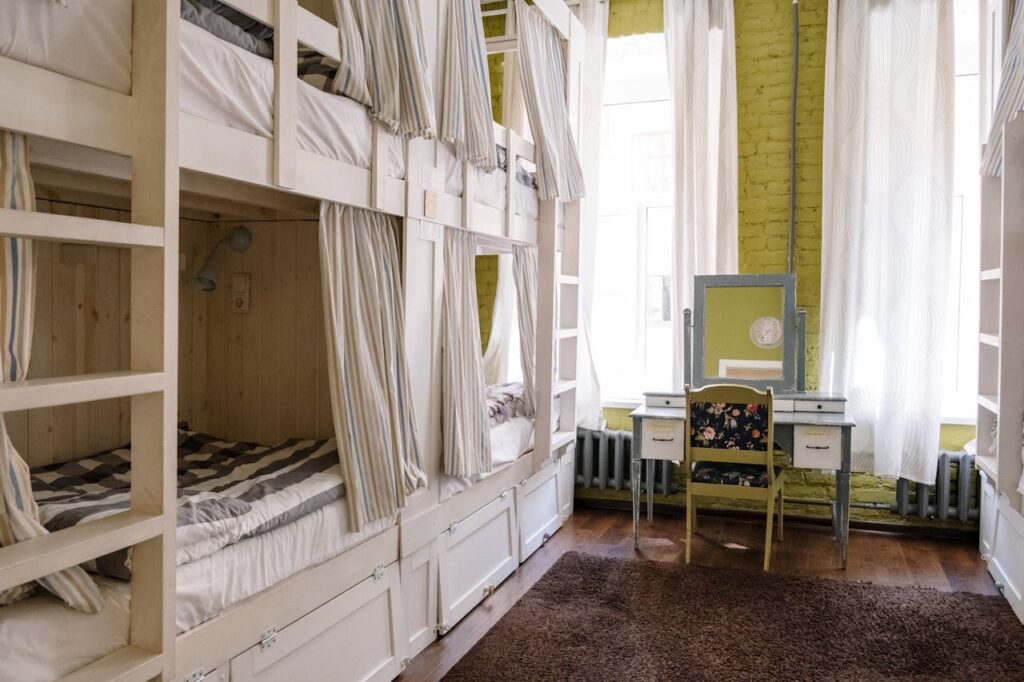Launching a hostel consists of four main stages:
🔍Analysis → 🏡Property Selection → 🔨Renovation → 🚩Launch
Let’s go through each step in detail.
Analysis
Starting with demand and competition
To analyze demand in most countries, you can use the Google Ads Keyword Planner. For the CIS, Yandex Wordstat is suitable, and for China, Baidu Index. These free tools show how many monthly searches users make.
The method is simple: type “Hostel + city name” and see how many people are searching and where they’re from. Try searching in different languages to get a more accurate picture.

Analyzing competitors is easy using map apps and booking services like Booking.com, Airbnb, or local platforms. This gives you pricing insights and helps estimate your own rates. On average, owners receive 80-85% of the listed price due to platform commissions. Hostel reviews contain valuable info, but it’s best to visit your competitors as a tourist and observe firsthand.
Legal aspects and taxation
This is a crucial stage to understand industry-specific restrictions. It’s best to consult a good advisor as it affects property choice, business model, and operations – basically, everything.
- Identify legal restrictions.
For example, in some countries you can’t place living areas in basements, or there are limits on area per guest and bathroom ratios, as well as technical requirements. - Choose a legal structure and tax regime.
This is essential for financial modeling and understanding government-related expenses.
Calculating the financial model
This stage is usually done for a specific property, but it’s better to estimate how many beds you need, expected expenses, and required space. Then adapt your plan accordingly. Use Excel or Google Sheets for calculations.
First, create an operational table
Revenue
The three most important metrics:
- Occupancy rate
- Number of beds
- Price per unit (bed or private room)

Expenses
Main categories:
- Payroll (including contributions)
- Utilities (electricity, water, internet, etc.)
- Taxes
- Commissions (booking platforms, cash register fees, amortization, etc.)
- Property costs (rent, building and land taxes, insurance, depreciation, etc.)
- Operating supplies (tea, coffee, water, cleaning supplies, etc.)
This table helps you determine the breakeven occupancy rate and what’s needed for profitability.
Calculate ROI
Estimate the total investment: renovation, furniture, and everything else – with a buffer for unexpected expenses. Once you know the total cost, you can assess the occupancy and price required to achieve a good return. This step brings a dose of realism.
Property Selection
The most important step! You can create a poor hostel, but if it’s in a great location, guests will come. Location, location, location! Either close to landmarks or a major transport hub – there are no other options.
Three options for acquiring property:
- Rent
- Buy
- Build
After exploring listings on all real estate platforms, consider walking around your target areas. You might find something abandoned but perfect for a hostel. Hostels don’t need to be on the main street – a quiet location 5 minutes from a transport hub is ideal for travelers. These hidden spots often have owners who don’t know what to do with the property.
Renovation
Once you’ve found the right property and signed the agreements, it’s time to renovate.

Preparation phase
Create a furniture layout sketch to plan utilities and any remodeling. Consider your design project and space concept at this stage.
Things like kitchen setup, bathrooms, common areas, and room finishes are similar to a regular apartment renovation with specific features.
Sleeping areas are different. Think about the beds early. You’ll need electrical outlets, floor and wall mountings. Standard bunk beds from stores are a bad idea. Custom-built beds are necessary, and that takes time and money.
Rough work
Let’s start the renovation! Hopefully, everything’s been planned thoroughly. Alongside your main crew, you’ll need specialists for specific tasks.
It’s best to hire contractors in advance and discuss details, so you can lay out all systems during rough work – not after everything is finished and covered.
Finishing work
Finalize finishing, electrical and plumbing. Set up furniture and equipment. Prepare everything guests might need (towels, linens, etc.). Stock up on consumables (cleaning supplies, tea, coffee, water, etc.).
Hostel Launch
You’ll likely need to resolve more legal details – they pop up at every stage. After that, it’s time to prepare for launch!

- Order professional photography
- Set up a hostel management system for smooth operations
- Announce your launch on social media and your website
- Add the property to maps with a well-filled listing
- Connect your hostel to booking platforms
That’s it – wishing you a successful hostel launch!


Leave a Reply